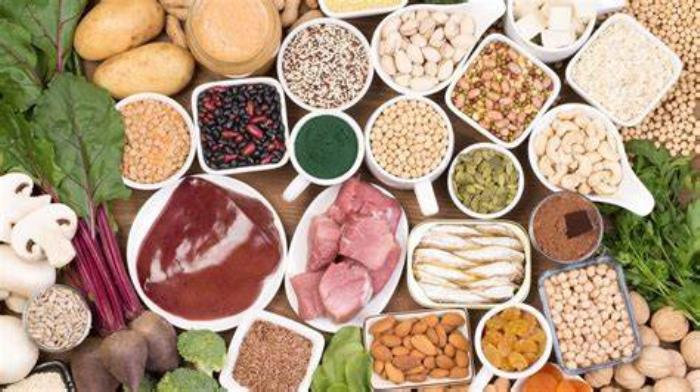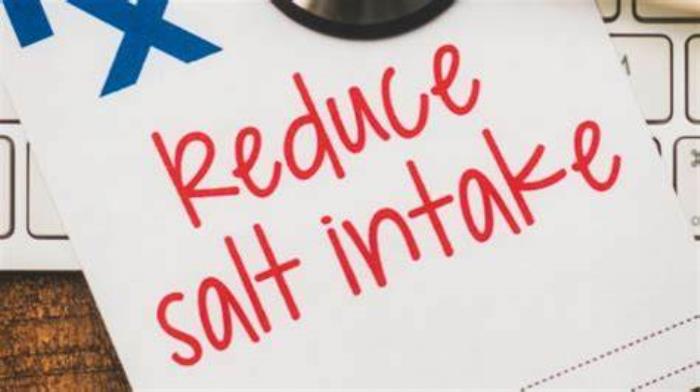Following a liver transplant, proper nutrition is crucial for recovery and long-term health. The liver plays a significant role in metabolizing nutrients, and after transplantation, it is essential to support the new liver's function through a balanced diet. A well-planned diet can help in preventing complications, supporting immune function, and promoting overall well-being. Understanding which foods to include and which to avoid is vital for transplant recipients to ensure optimal healing and to minimize the risk of rejection or other health issues.
Medical disclaimer: This content is for general awareness and does not replace a doctor’s consultation. For diagnosis or treatment decisions, consult a qualified specialist.
Foods to Include for Optimal Recovery Post-Liver Transplant
Incorporating a variety of nutrient-dense foods into the diet can significantly aid recovery after a liver transplant. Foods rich in protein, such as lean meats, fish, eggs, and legumes, are essential for tissue repair and immune function. Additionally, including fruits and vegetables provides necessary vitamins and minerals that support liver health. Whole grains, such as brown rice and oats, offer dietary fiber, which is important for digestive health. Healthy fats from sources like avocados and nuts can also be beneficial, as they provide energy and support cellular function.
Key Nutrients Essential for Liver Health After Transplantation
After a liver transplant, certain nutrients become particularly important. Vitamin C helps in tissue repair and boosts the immune system, while Vitamin D is crucial for bone health, especially since some medications can affect bone density. B vitamins, including B6 and B12, play vital roles in energy metabolism and red blood cell formation. Additionally, zinc is important for immune function and wound healing. Including foods rich in these nutrients can significantly enhance recovery and overall health.

Hydration: The Role of Fluids in Post-Transplant Care
Maintaining proper hydration is essential for liver transplant recipients. Adequate fluid intake helps to support kidney function, aids in digestion, and promotes overall metabolic processes. Water should be the primary source of hydration, but other fluids such as herbal teas and clear broths can also be beneficial. It is important to monitor fluid intake, especially if medications cause fluid retention or if there are restrictions based on individual health conditions. Dehydration can lead to complications, so ensuring a consistent intake of fluids is vital for recovery.
Lean Proteins: Essential Sources for Healing After Transplant
Lean proteins are a cornerstone of the post-transplant diet. Foods such as chicken, turkey, fish, and legumes provide the necessary amino acids required for tissue repair and immune function. Fish, particularly fatty types like salmon and mackerel, are rich in omega-3 fatty acids, which have anti-inflammatory properties that can benefit liver health. It is advisable to avoid processed meats that are high in sodium and preservatives, as these can be detrimental to overall health. Ensuring adequate protein intake is crucial for recovery and long-term health.
Healthy Fats: Incorporating Beneficial Oils Post-Transplant
Healthy fats are an important part of the diet after a liver transplant. Sources such as olive oil, avocado, and nuts provide essential fatty acids that support cellular health and energy levels. These fats can also help in the absorption of fat-soluble vitamins (A, D, E, and K), which are vital for overall health. It is advisable to limit saturated fats found in fried foods and fatty cuts of meat, as well as trans fats present in many processed foods, as they can negatively impact liver function and overall health.
Fruits and Vegetables: Their Role in Liver Health
Fruits and vegetables are rich in antioxidants, vitamins, and minerals that play a crucial role in supporting liver health post-transplant. Foods such as berries, citrus fruits, leafy greens, and cruciferous vegetables (like broccoli and cauliflower) are particularly beneficial. These foods help reduce inflammation and oxidative stress, which are important for the healing process. It is recommended to consume a variety of colors and types of fruits and vegetables to ensure a broad range of nutrients. Washing fruits and vegetables thoroughly is essential to reduce the risk of infections.
Whole Grains: Importance of Fiber in Recovery
Whole grains are an essential component of a balanced diet after a liver transplant. Foods such as brown rice, quinoa, whole wheat bread, and oats are rich in dietary fiber, which aids in digestion and helps maintain stable blood sugar levels. Fiber can also assist in preventing constipation, a common issue after surgery. Incorporating a variety of whole grains can provide sustained energy and essential nutrients, contributing to overall health and recovery. It is advisable to avoid refined grains that lack fiber and essential nutrients.
Limit Salt Intake: Managing Sodium for Liver Health
After a liver transplant, managing sodium intake is crucial to prevent fluid retention and hypertension. High sodium levels can exacerbate these conditions, making it essential to limit the consumption of processed and packaged foods, which often contain hidden salts. Instead, opt for fresh foods and use herbs and spices for flavoring. Reading food labels for sodium content is also beneficial. Reducing salt intake can significantly improve overall health and support the functioning of the new liver.

Alcohol: Understanding Its Impact Post-Transplant
Alcohol consumption is strongly discouraged after a liver transplant. The new liver is vulnerable, and alcohol can lead to severe complications, including liver damage and rejection of the transplant. It is essential to have a clear understanding of the risks associated with alcohol, as even small amounts can be harmful. Patients should discuss any questions or concerns regarding alcohol consumption with their healthcare provider to ensure a clear understanding of the guidelines and recommendations.
Foods to Avoid: Understanding High-Risk Foods After Transplant
Certain foods should be avoided after a liver transplant due to their potential to cause foodborne illnesses or negatively impact liver function. Raw or undercooked seafood, eggs, and meats pose a significant risk of infection. Additionally, unpasteurized dairy products and soft cheeses can harbor harmful bacteria. It is also advisable to avoid high-sugar and high-fat foods that can lead to weight gain and other health issues. Being aware of these high-risk foods is crucial for maintaining health and preventing complications.
Managing Weight: The Importance of a Healthy Body Weight Post-Transplant
Maintaining a healthy weight is vital for liver transplant recipients. Obesity can lead to complications such as metabolic syndrome, which affects liver function and overall health. A balanced diet combined with regular physical activity can help manage weight effectively. It is important to work with a healthcare provider or nutritionist to develop a personalized plan that considers individual needs and preferences. Monitoring weight regularly can help in making necessary adjustments to the diet and lifestyle to ensure optimal health.
Meal Planning: Strategies for a Balanced Diet After Transplant
Effective meal planning is essential for ensuring a balanced diet post-liver transplant. Planning meals in advance can help in incorporating a variety of nutrients while avoiding high-risk foods. It is beneficial to prepare meals at home, allowing control over ingredients and portion sizes. Incorporating a range of food groups, including lean proteins, whole grains, fruits, and vegetables, can help meet nutritional needs. Keeping a food diary can also assist in tracking intake and making informed dietary choices.
Supplements: When Are They Necessary After a Liver Transplant?
While a balanced diet is the primary source of nutrients, some liver transplant recipients may require dietary supplements to meet their nutritional needs. Common supplements include vitamin D, calcium, and omega-3 fatty acids. However, it is crucial to consult with a healthcare provider before starting any supplements, as some may interact with medications or be unnecessary. Regular monitoring of nutrient levels can help determine if supplementation is needed to support recovery and overall health.
Regular Follow-ups: Importance of Monitoring Nutritional Health
Regular follow-ups with healthcare providers are essential for monitoring nutritional health after a liver transplant. These appointments allow for the assessment of dietary habits, weight management, and overall health. Blood tests may be conducted to evaluate nutrient levels and liver function. Open communication with healthcare providers can help address any concerns regarding diet and nutrition, ensuring that patients receive the support they need for optimal recovery and long-term health.
Psychological Well-being: The Role of Mental Health in Recovery
Psychological well-being plays a significant role in recovery after a liver transplant. The stress of surgery and the adjustment to a new lifestyle can impact mental health. It is important to address any feelings of anxiety or depression, as these can affect dietary choices and overall health. Engaging in support groups, counseling, or therapy can provide valuable resources for managing mental health. A positive mental state can enhance motivation for maintaining a healthy diet and lifestyle, contributing to successful recovery.
How Lifestyle Changes Can Boost Liver Transplant Success
Learn how lifestyle changes can enhance the success of a liver transplant. Incorporating regular exercise, managing stress, and avoiding harmful habits like smoking and alcohol consumption can significantly improve recovery and long-term health. Find out practical tips to maintain a healthy post-transplant lifestyle.
Infection Prevention: Food Safety Practices After Transplant
Infection prevention is critical for liver transplant recipients, as their immune systems may be compromised due to immunosuppressive medications. Practicing food safety is essential to reduce the risk of foodborne illnesses. This includes washing hands before preparing food, cooking meats to appropriate temperatures, and avoiding cross-contamination. Additionally, it is advisable to consume only pasteurized dairy products and to thoroughly wash fruits and vegetables. Following these food safety practices can help protect against infections and support overall health.
Best Liver Transplant in India
The Best Liver Transplant in India provides life-saving treatment for patients with end-stage liver disease, offering advanced surgical techniques and comprehensive post-transplant care for successful recovery.
Best Liver Transplant Hospitals in India
The Best Liver Transplant Hospitals in India are equipped with cutting-edge technology and expert medical teams, ensuring top-notch care and optimal recovery for liver transplant patients.
Liver Transplant Cost in India
The Liver Transplant Cost in India offers an affordable solution for patients needing liver transplantation, ensuring access to world-class care at competitive pricing.
Best Liver Transplant Surgeons in India
The Best Liver Transplant Surgeons in India are highly skilled in performing liver transplants, providing precise surgeries and personalized care to ensure the best possible outcomes for their patients.
FAQs: Common Questions About Post-Transplant Nutrition
What are the best sources of protein after a liver transplant?
Lean meats, fish, eggs, legumes, and low-fat dairy products are excellent sources of protein that support healing and immune function.
Can I consume alcohol after a liver transplant?
No, alcohol consumption is strongly discouraged after a liver transplant due to the risk of liver damage and transplant rejection.
How can I manage my weight after a liver transplant?
Maintaining a balanced diet and engaging in regular physical activity are key strategies for managing weight effectively post-transplant.
Are dietary supplements necessary after a liver transplant?
Some patients may require supplements, but it is essential to consult with a healthcare provider before starting any to avoid interactions with medications.
Explore the latest medical advances to reduce liver transplant rejection risk, enhancing patient outcomes and graft longevity. How to Reduce Liver Transplant Rejection Risk: Latest Medical Advances
Explore the critical aspects of liver transplant logistics, focusing on organ preservation, transport, and post-transplant care. Understanding Organ Preservation and Transport in Liver Transplants
Recognizing signs like jaundice, fatigue, and encephalopathy early can indicate the need for a liver transplant, potentially saving lives. Signs That Indicate You May Need a Liver Transplant Soon